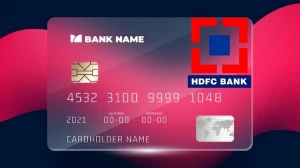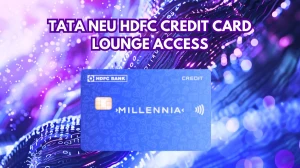
- Home »
- Credit Card »
- Best Reward Credit Cards of November 2023
Best Reward Credit Cards of November 2023
The Best Reward Credit Cards of November 2023 include top choices like the American Express® Gold Card, Capital One Venture Rewards Credit Card, Chase Freedom Unlimited® Card, and more, offering a range of rewards from cash back to travel benefits.
by Kowsalya
Updated Nov 07, 2023
On This Page
Best Reward Credit Cards of November 2023
Cash-back credit cards provide you with a percentage of your transaction amount as a cash rebate. On the other hand, travel rewards credit cards offer points or miles for every dollar spent, which can be exchanged for complimentary flights, hotel accommodations, and other travel-related benefits.
The choice of the most suitable rewards card varies based on your spending habits and the type of rewards you prioritize. Our curated list of top rewards credit cards can be customized to your preferences and applied accordingly.
| Category | Best Rewards Credit Card |
|---|---|
| Best Overall | American Express® Gold Card |
| Runner-up | Capital One Venture Rewards Credit Card (see rates and fees) |
| Best for Cash Back | Chase Freedom Unlimited® Card |
| Best for Luxury Travel | Chase Sapphire Reserve® |
| Best for Groceries | Blue Cash Preferred® Card from American Express |
| Best for No Annual Fee | Citi® Double Cash Card |
| Best for Online Shopping | Prime Visa |
| Best for Rotating Bonus Categories | Chase Freedom Flex℠ |
1. American Express® Gold Card
- Rewards:
- 4X Membership Rewards points at Restaurants (including takeout and delivery in the U.S.) and at U.S. supermarkets (up to $25,000 per year, then 1X)
- 3X points on flights booked directly with airlines or on amextravel.com
- 1X points on all other purchases
- Welcome Bonus: Earn 60,000 Membership Rewards points after spending $4,000 in the first 6 months.
- Annual Fee: $250
- Pros: Dining and Uber credits, strong rewards program, baggage insurance, no foreign transaction fees.
- Cons: No introductory APR, $250 annual fee.
2. Capital One Venture Rewards Credit Card
- Rewards:
- 5 Miles per dollar on hotel and rental cars booked through Capital One Travel
- 2X miles per dollar on all other purchases
- Welcome Bonus: Earn 75,000 bonus miles after spending $4,000 in the first 3 months.
- Annual Fee: $95
- Pros: Excellent hotel rewards rate, Global Entry/TSA PreCheck credit, two complimentary lounge visits per year.
- Cons: No introductory APR, $95 annual fee.
3. Chase Freedom Unlimited® Card
- Rewards:
- 5% cash back on travel through Chase Ultimate Rewards
- 3% cash back on drugstore purchases and dining (including takeout and delivery)
- 1.5% cash back on all other purchases
- Welcome Bonus: Extra 1.5% cash back on all purchases (up to $20,000 spent in the first year).
- Annual Fee: $0
- Pros: No annual fee, generous welcome bonus, 0% intro APR, cash-back rewards.
- Cons: 3% foreign transaction fee.
4. Chase Sapphire Reserve®
- Rewards:
- 5X total points on flights and 10X total points on hotels and car rentals through Chase Ultimate Rewards
- 3X points on other travel and dining
- 1X point per $1 on all other purchases
- Welcome Bonus: Earn 60,000 bonus points after spending $4,000 in the first 3 months.
- Annual Fee: $550
- Pros: $300 annual travel credit, Global Entry/TSA PreCheck credit, Priority Pass lounge access, points worth 50% more for travel redemptions.
- Cons: High annual fee, no intro APR.
5. Blue Cash Preferred® Card from American Express
- Rewards:
- 6% cash back at U.S. supermarkets (up to $6,000 per year, then 1%)
- 6% cash back on select U.S. streaming subscriptions
- 3% cash back at U.S. gas stations and on transit
- 1% cash back on other purchases
- Welcome Bonus: Earn a $250 statement credit after spending $3,000 in the first 6 months.
- Annual Fee: $0 intro annual fee for the first year, then $95.
- Pros: High cash-back rates for groceries and streaming, 0% intro APR.
- Cons: 2.7% foreign transaction fee.
6. Citi® Double Cash Card
- Rewards:
- 2% cash back (1% when you make a purchase and 1% when you pay your bill)
- Welcome Bonus: None
- Annual Fee: $0
- Pros: Simple cash-back program, 0% intro APR on balance transfers, no annual fee.
- Cons: 3% foreign transaction fee.
7. Prime Visa
- Rewards:
- 5% cash back at Amazon.com and Whole Foods Market
- 5% back on purchases through Chase Travel
- 2% back on local transit and commuting, including rideshare
- 2% back at restaurants, gas stations, and drugstores
- 1% back on all other purchases
- Welcome Bonus: Earn a $100 Amazon.com gift card upon approval.
- Annual Fee: $0 (Prime membership required)
- Pros: No annual fee (requires Prime membership), 5% back at Amazon and Whole Foods.
- Cons: Prime membership is required, and 5% back on groceries applies to Amazon/Whole Foods only.
8. Chase Freedom Flex℠
- Rewards:
- 5% cash back on up to $1,500 in combined purchases in quarterly bonus categories
- 5% cash back on travel through Chase Ultimate Rewards
- 3% cash back on drugstore purchases and dining
- 1% cash back on all other purchases
- Welcome Bonus: $200 cash back after spending $500 in the first three months.
- Annual Fee: $0
- Pros: No annual fee, rotating bonus categories, 0% intro APR.
- Cons: Bonus categories must be activated each quarter, 3% foreign transaction fee.
What is a Rewards Credit Card?
A rewards credit card is a type of credit card that offers incentives and benefits to cardholders for making purchases. These incentives typically come in the form of points, miles, or cash back, which accumulate based on the cardholder's spending patterns. Rewards credit cards can provide cardholders with the opportunity to earn rewards at a flat rate on all purchases or at a higher rate in specific bonus categories, such as travel, dining, or groceries.
The accumulated rewards can be redeemed for a variety of options, including travel bookings, statement credits, merchandise, gift cards, and more, depending on the card's redemption options. While rewards credit cards offer the potential for savings and perks, it's essential for cardholders to understand the card's terms, including any annual fees, rewards caps, and interest rates, to make the most of their rewards and benefits.
Discover MarketsHost, your source for practical financial advice and business tips.
What Are the Types of Rewards Credit Cards?
Rewards credit cards come in various types, each designed to cater to different spending habits and preferences. Here are the three main types of rewards credit cards:
Cash Back Cards
- Flat-rate Cash Back Cards: These cards offer a fixed percentage of cash back on all purchases. For example, the Capital One Quicksilver card offers 1.5% cash back on all purchases.
- Tiered Cash Back Cards: Tiered cash-back cards provide higher reward rates for specific categories of purchases, such as groceries, gas, or dining. They typically offer at least 1% cash back on general purchases. An example is the Blue Cash Preferred, which offers higher rewards rates in U.S. supermarkets and select U.S. streaming services.
- Rotating Bonus Category Cards: These cards offer higher rewards on specific categories that change periodically. The categories may rotate quarterly, monthly, or based on your spending patterns. The Discover it® Cash Back card, for instance, offers 5% cash back in rotating categories each quarter.
Travel Rewards Cards
- Co-branded Travel Cards: Co-branded travel cards offer enhanced rewards when you make purchases with a specific airline or hotel. You earn points or miles tied to that airline or hotel brand and can typically only redeem rewards with that specific brand.
- General-purpose Travel Cards: These cards are not tied to a single airline or hotel brand. They earn points or miles on all purchases, which can be redeemed through the issuer's travel portal for various travel expenses. Some cards also allow you to transfer points to airline or hotel loyalty programs for greater value.
Business Rewards Cards
- Small Business Rewards Cards: These are designed for business owners and offer rewards tailored to common business expenses, such as office supplies, advertising services, and travel. An example is the Ink Business Cash® Credit Card.
How to Pick a Rewards Credit Card?
Choosing a rewards credit card that suits your needs and spending habits requires careful consideration. Here's a step-by-step guide on how to pick the right rewards credit card:
Assess Your Spending Habits
- Start by analyzing your typical monthly expenses, such as groceries, gas, dining, travel, and entertainment. Knowing where you spend the most money will help you choose a card that rewards those categories.
Determine Your Willingness to Pay an Annual Fee:
- Decide whether you're comfortable paying an annual fee for a rewards credit card. Some cards offer valuable benefits that can outweigh the fee, but it's essential to ensure they fit your budget.
Choose the Type of Rewards
- Rewards credit cards typically offer cash back, points, or miles. Decide which type of rewards you prefer based on your goals and preferences.
- Cash Back: Get a percentage of your spending back as cash.
- Points and Miles: Earn points or miles on purchases, which can be redeemed for various rewards like travel, merchandise, or gift cards.
Select the Rewards Structure
Consider the reward structure that aligns with your spending:
- Flat-rate rewards: Offers a consistent rewards rate on all purchases.
- Bonus categories: Provides higher reward rates in specific spending categories.
- Rotating categories: Offers elevated rewards in changing bonus categories.
Explore Welcome Offers
- Look for cards with generous welcome offers or sign-up bonuses for new cardholders. These bonuses can provide significant value in the form of cashback, points, or miles.
Check for Additional Card Perks
- Investigate the card's extra benefits, such as annual statement credits, lounge access, 0% APR introductory periods, travel insurance, or purchase protection. These perks can enhance the card's overall value.
Research Redemption Options
- Understand how you can redeem your rewards. Common redemption options include statement credits, travel bookings, gift cards, merchandise, and more. Ensure that the redemption options align with your preferences.
Consider Your Future Plans
- If you have major expenses or purchases planned, look for cards with 0% APR introductory offers. These cards allow you to make large purchases and pay them off over time without accruing interest charges.
Compare Cards
- Use comparison tools and websites to evaluate multiple rewards credit card options side by side. Pay attention to annual fees, rewards rates, welcome offers, and additional perks.
Read Cardholder Reviews
- Read reviews from current cardholders to gain insights into their experiences with the card's rewards program, customer service, and overall satisfaction.
Apply for the Card
- Once you've identified a rewards credit card that aligns with your spending and preferences, complete the application process. Ensure that you meet the card issuer's eligibility requirements and have a good credit score.
Manage Your Card Wisely
- After obtaining the card, use it responsibly by paying your bills on time, staying within your credit limit, and maximizing the rewards offered.
Which Credit Card Has the Highest Reward Point Value?
The credit card industry offers a wide range of reward programs, each with its own point valuation and redemption options. When it comes to determining which credit card has the highest reward point value, it's essential to consider various factors, including the card issuer, specific card offerings, and how you intend to redeem the points. Here are some credit cards and programs known for having high reward point values:
Chase Ultimate Rewards Points
Chase Sapphire Reserve®: Chase Ultimate Rewards points earned with this card can be worth up to 1.5 cents per point when redeemed for travel through the Chase Ultimate Rewards portal. This card offers premium travel benefits and generous earning potential.
U.S. Bank Altitude Reserve Visa Infinite® Card
This card offers an average point value of around 1.3 cents per point, with the potential for redemption values as high as 1.7 cents per point. It's known for its travel-focused rewards and benefits.
Citi Premier® Card
While Citi Premier points have an average value of approximately 0.98 cents per point, they can be worth up to 1 cent per point when redeemed for travel. This card is popular for its flexible travel rewards program.
PenFed Platinum Rewards Visa Signature® Card
PenFed points have an average value of around 0.86 cents per point, with a maximum value of 0.87 cents per point. This card is associated with the Pentagon Federal Credit Union and offers various redemption options.
Bank of America® Premium Rewards® credit card
Bank of America Premium Rewards points typically have an average value of 0.85 cents per point but can be worth up to 1 cent per point when redeemed for travel. This card offers flexible rewards and travel benefits.
What Are the Pros and Cons of Rewards Cards?
Here is the list of the Pros and Cons of Rewards Cards:
Pros of Rewards Cards
- Rewards cards infuse added value into your spending habits. Earning rewards on every transaction is akin to discovering daily hidden treasures, which can gradually accumulate into substantial savings.
- Travel rewards credit cards unlock opportunities for more frequent or luxurious journeys at discounted rates. Whether upgrading to first-class comfort or accessing premium accommodations, these cards can enhance your travel endeavors while saving you money.
- Many travel cards extend protective measures, such as compensating for lost baggage, significant flight delays, cancellations, or curtailed trips due to unforeseen emergencies. Additionally, rental car coverage is often included, all without incurring extra expenses.
Cons of Rewards Cards
- Rewards cards commonly carry higher Annual Percentage Rates (APRs), potentially leading to increased credit card debt costs over time. For sizable purchases to be repaid gradually, exploring a card with a 0% introductory APR offer is recommended.
- Especially when holding multiple rewards cards, annual fees can accumulate and impact your overall financial outlay.
- Maximizing rewards demands a certain level of mental engagement. While some enjoy the challenge of optimizing every transaction and orchestrating intricate vacation plans, others may find it burdensome to juggle multiple cards and categories. For those seeking uncomplicated rewards, a straightforward flat-rate cash back or travel card may offer an inviting entry into the realm of rewards cards.
Best Reward Credit Cards of November 2023 -FAQs
1. What are the best reward credit cards for November 2023?
Some of the top reward credit cards for November 2023 include the American Express® Gold Card, Capital One Venture Rewards Credit Card, Chase Freedom Unlimited® Card, Chase Sapphire Reserve®, Blue Cash Preferred® Card from American Express, and more.
2. How do these reward credit cards work?
Reward credit cards allow you to earn points, miles, or cash back for every purchase you make using the card. These rewards can then be redeemed for various benefits such as travel, cash rebates, gift cards, or merchandise.
3. What are the benefits of using these cards?
The benefits vary based on the card, but they often include earning rewards on your everyday spending, access to travel perks like airline lounges or hotel upgrades and cash back on specific categories like groceries or dining.
4. How do I choose the right card for me?
Consider your spending habits, lifestyle, and preferences. If you travel frequently, a travel rewards card might be suitable. For those who prefer simplicity, a cash-back card could be a better choice. Evaluate the rewards rates, annual fees, and additional perks to find the best fit.
5. Are there any drawbacks to using reward credit cards?
While reward credit cards offer enticing benefits, they may come with annual fees, higher interest rates, or spending requirements. It's crucial to ensure that the rewards you earn outweigh any associated costs and that you pay off your balance to avoid interest charges.




